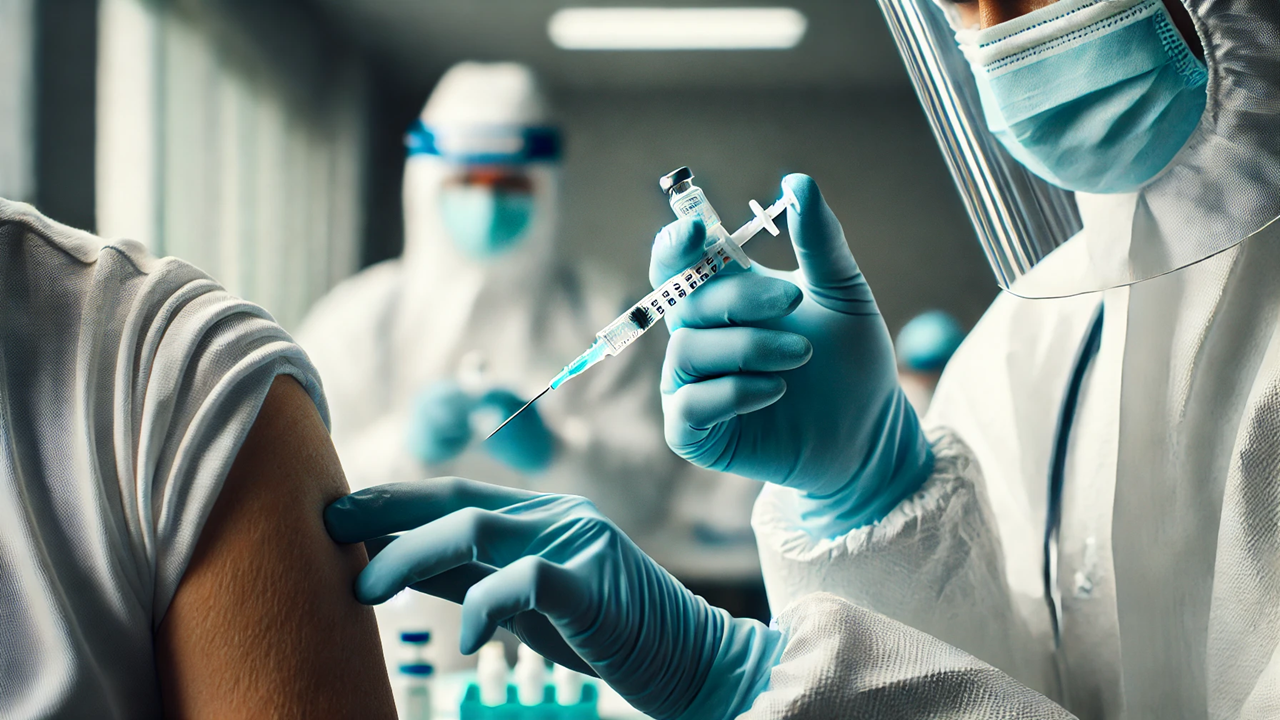Smallpox and Mpox Vaccines: A Vital Tool in Global Health Defense
In August 2024, the World Health Organization (WHO) released an in-depth position paper addressing the use of vaccines against smallpox and mpox, two orthopoxvirus-related diseases. This document outlines critical updates on the effectiveness of vaccines such as MVA-BN, LC16m8, and ACAM2000, along with recommendations on their application across different populations. It delves into the safety, immunogenicity, and impact of these vaccines on global public health. The WHO’s position emphasizes the importance of vaccination in controlling and preventing outbreaks, ensuring that nations are well-prepared for future health challenges.

The Reemergence of Orthopoxviruses: Vaccines at the Forefront
With the eradication of smallpox in 1980, it seemed the world had seen the last of the deadly virus that once claimed millions of lives. However, the persistence of related orthopoxviruses, particularly mpox (formerly known as monkeypox), has proven that vigilance is still required. In its latest position paper, the World Health Organization (WHO) provides vital guidance on how vaccines for smallpox and mpox play a crucial role in combating these diseases today.
The WHO’s August 2024 report offers a comprehensive update on vaccine effectiveness, administration methods, and the role of vaccines in managing outbreaks. This paper is part of the WHO’s continuous efforts to ensure public health systems remain prepared against these viral threats.
Smallpox: A Historical Epidemic Controlled by Vaccination
Smallpox, a viral disease caused by the variola virus, was responsible for millions of deaths before its eradication. Spread through respiratory droplets, skin contact, or contaminated objects, smallpox had a staggering 30% mortality rate. The disease was also notorious for leaving survivors with disfiguring scars or blindness.
Smallpox eradication was achieved through widespread vaccination campaigns and surveillance, marking one of humanity’s greatest public health achievements. The WHO’s position paper highlights that the cessation of smallpox vaccination has left the population vulnerable to related viruses, including mpox. While smallpox no longer threatens us directly, the variola virus still exists in high-security labs, keeping the risk of accidental or intentional release a concern.
The vaccines developed for smallpox, such as MVA-BN, LC16m8, and ACAM2000, have proven invaluable in offering cross-protection against other orthopoxviruses like mpox.
Mpox: The Rising Global Concern
Mpox, caused by the monkeypox virus (MPXV), is an emerging public health concern. Although previously confined to endemic regions in Africa, mpox outbreaks have recently spread to countries without a history of the disease. In 2022, mpox was declared a Public Health Emergency of International Concern (PHEIC) by the WHO, following a series of outbreaks that primarily affected men who have sex with men (MSM).
While mpox has a lower fatality rate than smallpox, its symptoms—including fever, headache, and painful rashes—can be severe. The WHO reports that over 97,000 confirmed mpox cases and 186 associated deaths were recorded between 2022 and April 2024. Vaccination has been a crucial tool in controlling this outbreak, and the WHO has provided detailed recommendations for the use of vaccines like MVA-BN in combating mpox.
Vaccines: A Cornerstone in Global Health Defense
The WHO’s position paper emphasizes the effectiveness of vaccines in curbing smallpox and mpox outbreaks. It focuses on three key vaccines—MVA-BN, LC16m8, and ACAM2000—that have been shown to offer significant protection against these diseases.
MVA-BN: This third-generation vaccine is non-replicating, making it a safer option for those with weakened immune systems. It has been extensively tested in both animals and humans, showing high efficacy in preventing mpox and smallpox. During the 2022 mpox outbreak, the WHO noted that one dose of MVA-BN provided vaccine effectiveness of 76%, while two doses increased protection to 82%.
LC16m8: Originally developed for smallpox, LC16m8 is a minimally replicating vaccine. While its effectiveness against mpox is still under study, it has shown promising results in animal models and offers an additional option for outbreak control. The WHO’s report highlights its potential as a safe and effective option, particularly in populations previously vaccinated against smallpox.
ACAM2000: This second-generation smallpox vaccine, derived from live vaccinia virus, has proven effective in controlling orthopoxvirus outbreaks. However, ACAM2000 is a replicating vaccine, which can cause rare but serious side effects such as myopericarditis, making it less ideal for people with compromised immune systems.
Vaccine Safety and Administration
The WHO emphasizes the need for careful consideration when administering vaccines to specific populations, such as pregnant women, children, and individuals with weakened immune systems. MVA-BN is not currently licensed for children under 18, though emergency use during outbreaks has proven it safe in this age group. Similarly, while LC16m8 has not been widely studied in pregnant women, it has been safely used in children, with over 97% achieving immunity within a month of vaccination.
Administering vaccines through different methods, such as subcutaneous or intradermal injections, is also highlighted as a way to optimize vaccine use during shortages. In some regions, a fraction of the standard dose of MVA-BN was administered intradermally to stretch supplies without compromising effectiveness.
The Road Ahead: Preparing for Future Outbreaks
The WHO’s 2024 position paper on smallpox and mpox vaccines is a critical document for public health officials worldwide. It not only underscores the importance of vaccines in managing orthopoxvirus outbreaks but also prepares nations to respond quickly to future threats. By offering a detailed review of vaccine efficacy, safety, and administration strategies, the WHO is ensuring that the global health community remains vigilant against these viruses.
As the world faces evolving health challenges, vaccines like MVA-BN, LC16m8, and ACAM2000 will continue to be cornerstones of our defense against viral outbreaks. Effective vaccination strategies and global cooperation will be key to preventing future pandemics and protecting vulnerable populations from these formidable diseases.
- READ MORE ON:
- Smallpox
- Mpox
- Vaccines
- WHO
- MVA-BN
- LC16m8
- ACAM2000
- Public Health
- Vaccination Strategy
- Epidemic Control
- FIRST PUBLISHED IN:
- Devdiscourse










